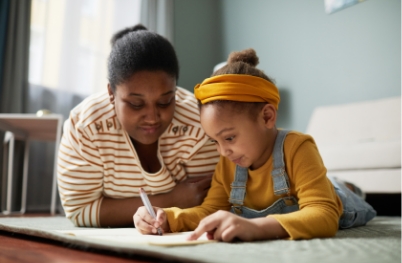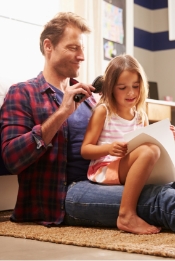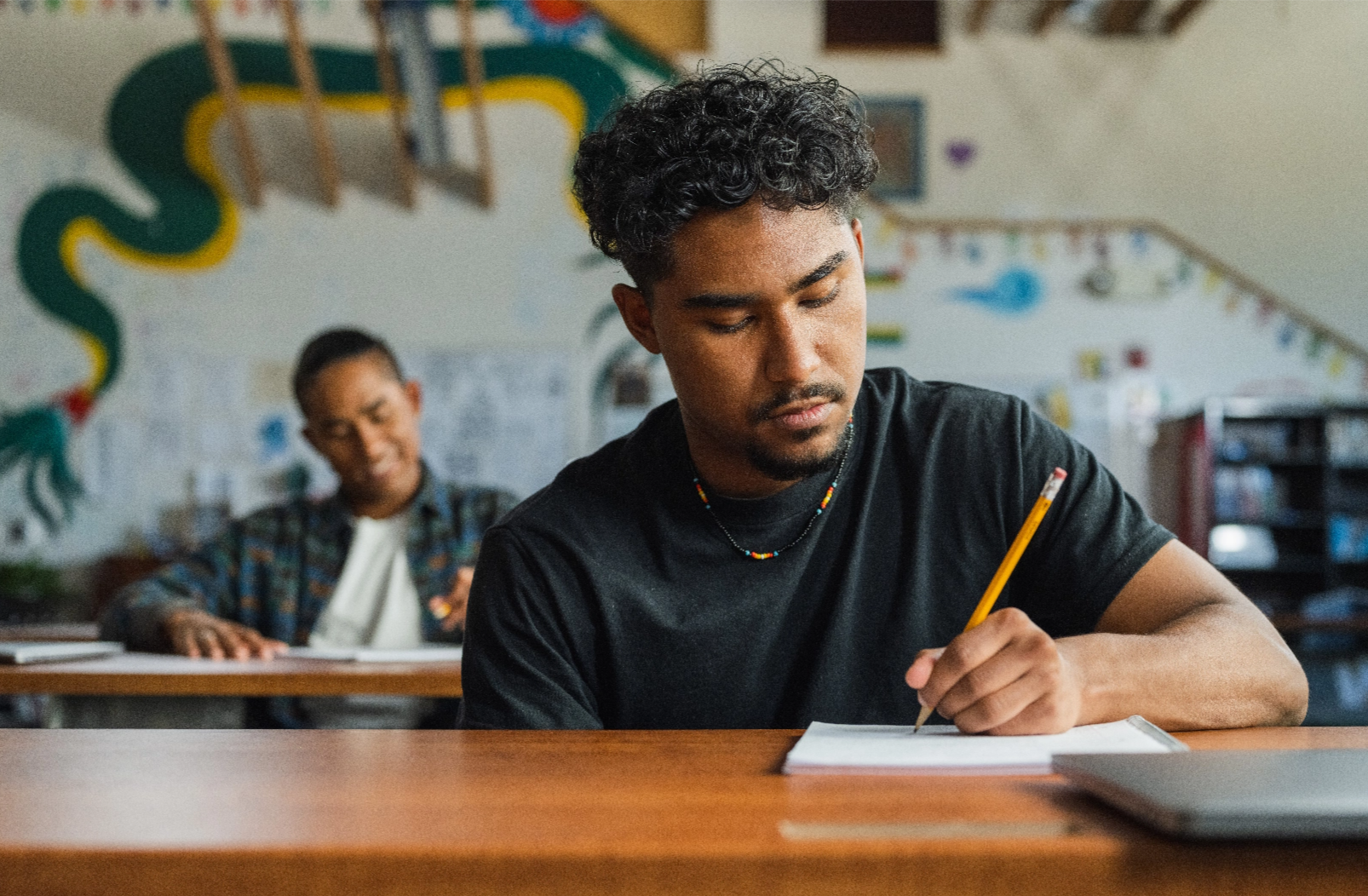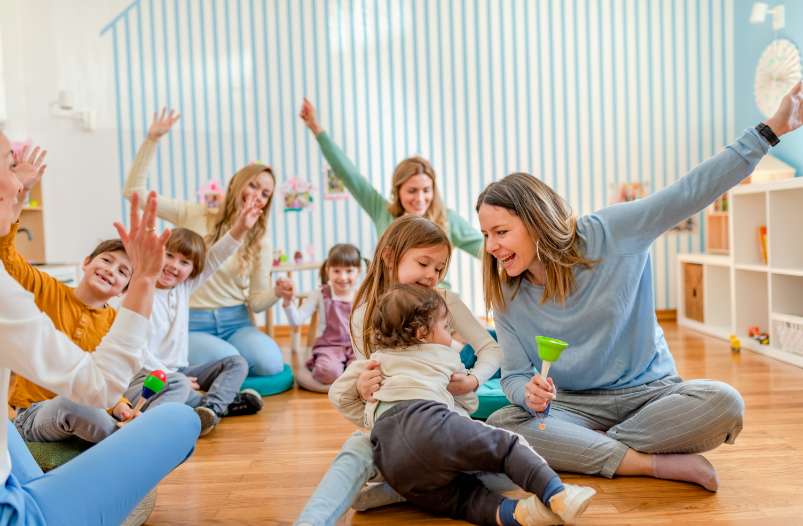
Divorce represents not just the end of a marriage but also the beginning of a new, albeit challenging, chapter for every member of the family. Its effects ripple out, touching lives in ways both expected and unforeseen. Among those most profoundly affected are children. How does divorce affect children? To them, divorce is not just a legal dissolution but an upheaval of their world — their stability, security, and sense of normalcy.
Children's responses to divorce can be as varied as their personalities. While some may navigate the changes with relative ease, others might find themselves lost in a sea of emotions, grappling with feelings they can barely articulate. This variance in reaction is a crucial aspect of understanding the effects of divorce on children.
At The Center for Divorce Education, we recognize the depth and diversity of these experiences. Our aim is not just to provide support for parents navigating the intricacies of divorce but also to offer a guiding hand to the young lives caught in the midst of this transformation. This article will shed light on the multifaceted effects of divorce on children, offering insights and support strategies to help families navigate these challenging times. By understanding these effects, we can better support our children through this significant life transition.
Jump Links
- Poor Academic Performance
- Lack of Interest in Social Interactions
- Emotionally Sensitive
- Guilt & Self-Blame
- Trouble Adapting to Change
- Exhibiting Destructive Behaviors
- Anger and Irritability
- More Health-Related Problems
- Skewed Perspective on Marriage & Family
- Navigating Divorce with Support: Transforming Challenges into Opportunities
1. Poor Academic Performance
One of the most common negative effects of divorce on children is seen in their schoolwork. The upheaval of family dynamics during divorce often spills over into a child's academic life, leading to poor performance in school. As children struggle to come to terms with the changes in their family, their focus and concentration can falter, affecting their ability to keep up with school work. This decline in academic achievement is a clear indicator of the internal turmoil they might be experiencing.
A The Center for Divorce Education, a big part of what we do is provide resources that can help parents support their children through these academic challenges, ensuring that the impact of divorce does not hinder their educational growth.
2. Lack of Interest in Social Interactions
Divorce can profoundly affect a child's social interactions and interests. Research shows that one of the impacts of divorce on children is they may withdraw from social engagements, experiencing a decline in their interest in activities they once enjoyed. This withdrawal is not just a phase; it reflects the deep emotional and psychological impact of divorce on children. Recognizing and addressing this shift in behavior is vital, and resources like the Children In Between: For Kids class can play a crucial role in helping children regain their social confidence and engagement.
3. Emotionally Sensitive
The emotional landscape for children experiencing divorce is often complex and turbulent. Feelings such as loss, anger, confusion, and anxiety are common, making children emotionally sensitive during this period. This heightened emotional state can affect their interactions with others and their overall well-being.
At The Center for Divorce Education, we understand these challenges and offer supportive resources to help children process their emotions in a healthy and constructive way, ensuring they have the emotional support they need.
4. Guilt & Self-Blame
Children often internalize the divorce of their parents, leading to feelings of guilt and self-blame. They may wonder if their actions contributed to the situation, creating an additional emotional burden. These feelings of guilt are not only distressing but can also lead to further psychological issues.
It’s important for parents to provide clear, age-appropriate explanations and reassurances. The Center for Divorce Education offers helpful guides and programs, including our High Conflict Solutions class, to aid in addressing and alleviating these feelings in children.
5. Trouble Adapting to Change
The constant flux of post-divorce life – new living arrangements, shifting family dynamics, and perhaps even new schools – can be particularly disorienting for children. Their ability to adapt to these changes varies, often reflecting their emotional resilience and support systems. It’s important to acknowledge and assist children in navigating these changes.
The Center’s resources, such as our Children in Between: for Kids class, offer guidance and tools to help children adapt more effectively to the new realities of their post-divorce lives.
6. Exhibiting Destructive Behaviors
The turmoil of divorce can sometimes lead children down a path of destructive behaviors as a means of coping with their distress. Unresolved conflicts and emotional pain may manifest in risk-taking or rebellious actions, such as experimenting with smoking or other harmful habits. It's essential for parents to be vigilant and proactive in addressing these behaviors.
Resources and guidance provided by The Center for Divorce Education, especially through High Conflict Solutions, offer valuable support in steering children away from these negative coping mechanisms and towards healthier ways of dealing with their emotions.

7. Anger and Irritability
In the wake of divorce, it's not uncommon for children to exhibit anger and irritability. These emotional responses are one of the most common divorce effects on children. They are often a manifestation of their confusion and frustration surrounding the changes in their family life. Such feelings might be directed towards parents, siblings, or peers, and can sometimes persist over time.
Recognizing and addressing these emotions is crucial for the child's emotional health. The Center for Divorce Education provides insightful resources, accessible through our classes like Children in Between: For Kids, to help parents and children navigate these challenging emotional responses.
8. More Health-Related Problems
The stress and emotional strain of divorce can have tangible effects on a child's physical health. Increased susceptibility to illness, sleep disturbances, and signs of depression are not uncommon. These health issues are often a direct reflection of the psychological impact of divorce.
Addressing these concerns early and effectively is crucial for the child’s overall well-being.
The Center for Divorce Education provides comprehensive resources to help parents support their children in maintaining both their mental and physical health during this challenging time.
9. Skewed Perspective on Marriage & Family
Exposure to divorce can alter a child’s long-term perspective on relationships and the concept of a stable family unit. Studies indicate that children of divorced parents may have an increased likelihood of divorce in their own future relationships. This effect underscores the importance of providing children with positive and realistic models of relationships and conflict resolution.
The Center for Divorce Education addresses these concerns by offering programs and resources that help children develop a balanced and healthy view of relationships, ensuring they have the tools to build stronger, more resilient connections in their own lives.
Related Articles: How Does Divorce Affect Children?

*Included in SAMHSA's National Registry of Evidence-Based Programs and Practices
© 2025 The Center for Divorce Education


